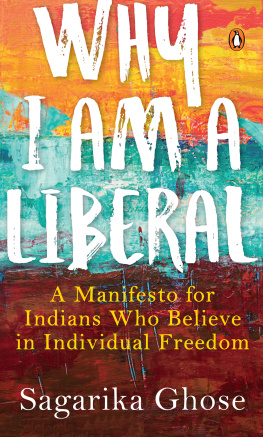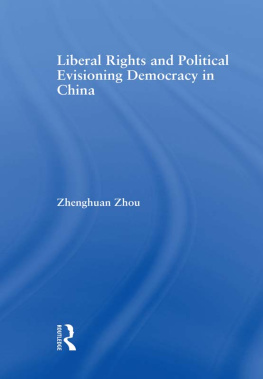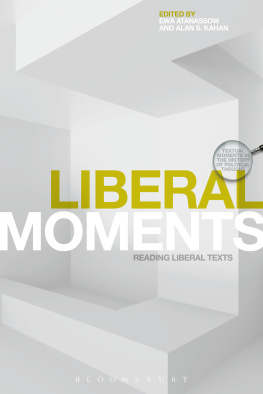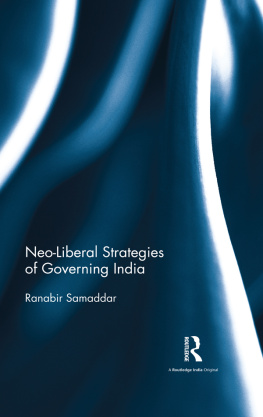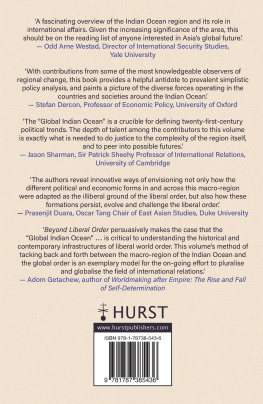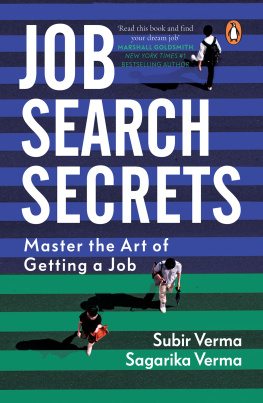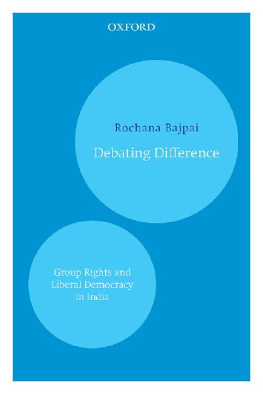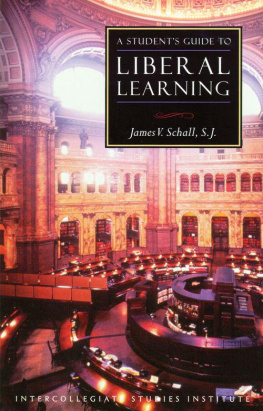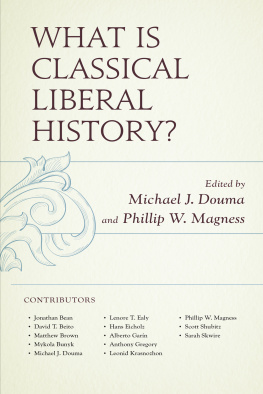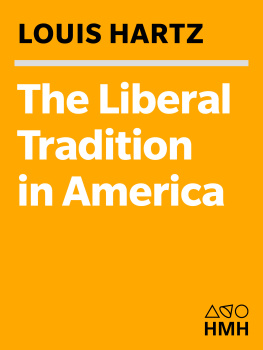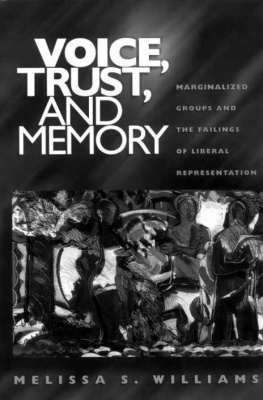Introduction
W hy this long essay on why I am a liberal? What is the need for it? What are the reasons for trying to create a manifesto or a charter for Indian liberals at a time when the word liberal itself is considered discredited and is almost a term of abuse? These days its fashionable to write on the Indians religious or cultural identity. Perhaps its less in tune with the prevailing zeitgeist to write on the Indians modern liberal identity. Does the twenty-first century Indian even have a liberal identity which is both self-aware, self-critical and committed to modern liberal values?
The word liberal is central to the political and public debate at this moment. For many, the liberal is the arch-enemy; the liberal is considered anti-national, anti-Hindu, anti-religious, even anti-India. Liberal women, particularly, are perceived to be on a collision course with Indian values. Women seen in a bar are liable to being dragged out by the hair and beaten. Women protesting against discrimination and harassment in a university hostel are liable to being accused of marketing their modesty. Liberal women who dare to fall in love with men from a different religion are liable to being hauled up before the courts and described as helpless, unthinking, infantilized beings who have been either brainwashed, lured into infamy or led astray.
The mantra goes: the Indian who displays muscular nationalism is the authentic Indian! Rooted in Indian values! Rooted in Indian soil! The liberal? Hah! The liberal is cast as disconnected and anti-Bharatiya sanskriti. Millions of Indian citizens who define themselves as broadly liberal or in Hindi pragatisheel, udaarvaadi, reformist or secular are puzzled by this enmity directed at them. They are taken aback by the hatred that self-proclaimed nationalists direct against them. Who are they, these millions of Indian liberals? There are so many. There are the various followers of the dazzling procession throughout Indias history of non-denominational prophets, philosophers and thinkers who were thought leaders on self-criticism and change. There are the progressive thinkers toiling to bring change at the grassroots. There are those who freely raise slogans at a university. There are those who participate in Dalit protests against injustice. There are those who interrogate Hinduisms rich traditions. There are those who question caste injustice, superstition and black magic. There are those who popularize the works of twelfth-century spiritual reformers like Basavanna. There are those citizens who work to bring welfare measures to areas where armed Maoism is dominant. There are those who support the right to eat the food of your choice, who support the right to worship according to choice, who love others of the same sex, who marry outside religious boundaries, who dare to fall in love and link hands in public.
Are all these millions of people against India and her traditions? When moral policemen and vigilante mobs enforce their idea of Indian values, when police form Romeo squads to target young lovers, when a jeans-clad young woman speaking on a mobile phone is seen by university authorities and khap panchayats as a she-devil whose dangerous inner energy must be curbed by patriarchal control, and when the government of the day lends them support, when religious minorities find themselves constantly in mortal danger, then indeed it does seem as if the light of our quiet, home-grown liberalism, so beloved of so many, is flickering, if not dying out altogether. But if that liberal light is dying, then this book throws its arms (however flimsy) around the liberal flame to protect it from the threatening gusts, and cries out, Do not go gentle into that good night... rage, rage against the dying of the light.
So perhaps this is precisely the right time to write this essay. Precisely because people perceived to be liberal are under unprecedented attack. This book is a journalistic reportorial essay written in the spirit of advancing an argument to spark a debate among interested citizens. It makes no claim to have all the answers; instead, like a pilgrim, its only the beginning of a quest for the answers, the start of a journey. The seeker seeks and invites others to join in the search. In the spirit of the Upanishadsthe word, as Indias philosopherpresident S. Radhakrishnan so beautifully describes, means to sit nearthis book is written to open a dialogue, to ask who is the Indian liberal, what does Indian liberalism mean and why is the liberal so misunderstood and so caricatured by those who are anti-liberal? Lets open the dialogue.
First, a definition of liberalism, a look at the way the word and the philosophy is generally understood. Liberalism is a move for freedom from monarchical and feudal control... for freedom of speech, freedom of membership of groups... for the independence of the ordinary man from the state or from organized labour... liberals are committed to the equality of the Left... and laissez faire economic theories, often seen as the middle, although liberals see themselves as radicals, wishing to change society.
There is little agreement on what liberalism exactly means, although all liberals are united in their primary belief in limited government, autonomous institutions, individual freedom and the rule of law. Liberalism seeks, above all, to limit political power and enables individuals to experiment freely in various spheres of life. accepting dissent, disagreement, minority rights and religious freedom; liberalism need not be an advocate for open borders but because liberals place great store in equality before the law, immigrants cannot be restricted on the basis of race or religion, they write.
Liberalism is a set of beliefs marked by its humility, which constantly seeks dialogue and is sceptical about utopian claims of human perfectability. Thus, liberalism has no ready made easy solutions... and is inseparable from the doubts we feel about it. The authors point out that Modern liberal societies are the best political systems we fallible humans have managed to create.
In India, liberals may be Left liberals (that is, believers in social freedoms but in a more or less government-controlled economy, like many liberals in the Congress party) or they may be Right liberals (believers in laissez faire economics but uncaring about assaults on individual personal and civic freedoms such as attacks by gau rakshaks or the various moral policeman senas, like some liberals in the Bharatiya Janata Party [BJP]).
For the purpose of this essay I have chosen to emphasize the Gandhian definition of the term liberal. Mohandas Karamchand Gandhi was, in many ways, the most successful liberal politician of all time.

